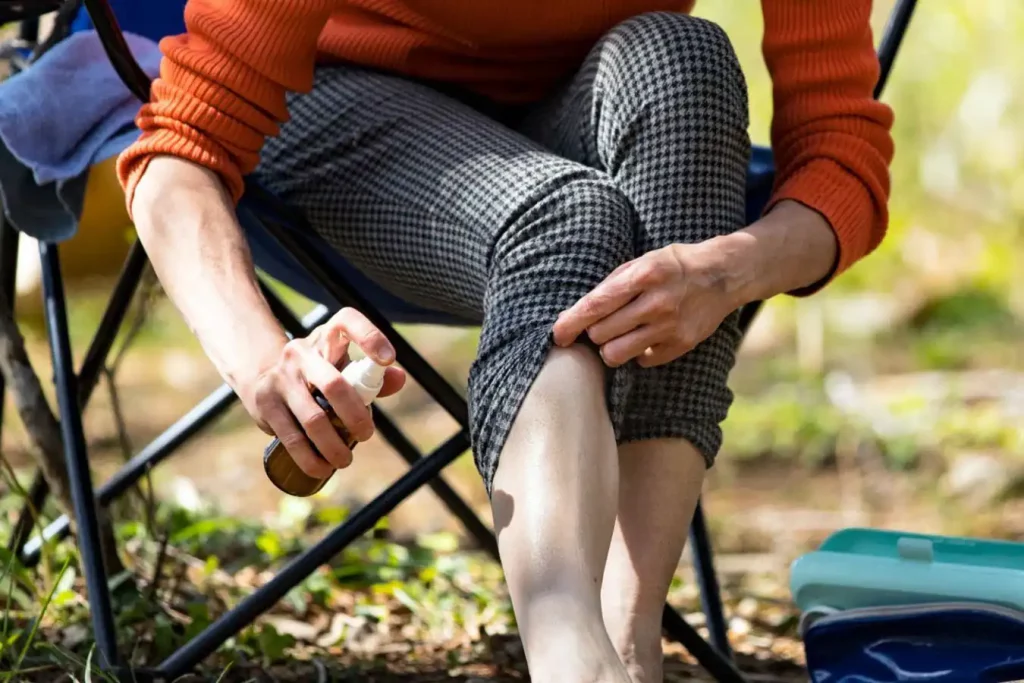Worried about how to avoid ticks while camping? Trust me, you’re not alone!
Those pesky little bugs can turn a fun wilderness adventure into an itchy ordeal.
Fear not; I’ve got some tried-and-true prevention methods that will help you relax and enjoy your time under the stars, tick-free!
Understanding Ticks and Their Risks
Before we delve into how to avoid ticks, it’s vital to grasp what they are and the risks they present. After all, knowing your enemy is half the battle won.
What are Ticks?
Ticks, the bane of any outdoor enthusiast’s existence, are small, blood-sucking parasites. Picture this: you’re waking up in the morning, the sun is peeking through the trees, and you’re ready for another day of adventure. As you roll up your sleeping bag, you find a small critter clinging on your leg. That, my friends, could be a tick.
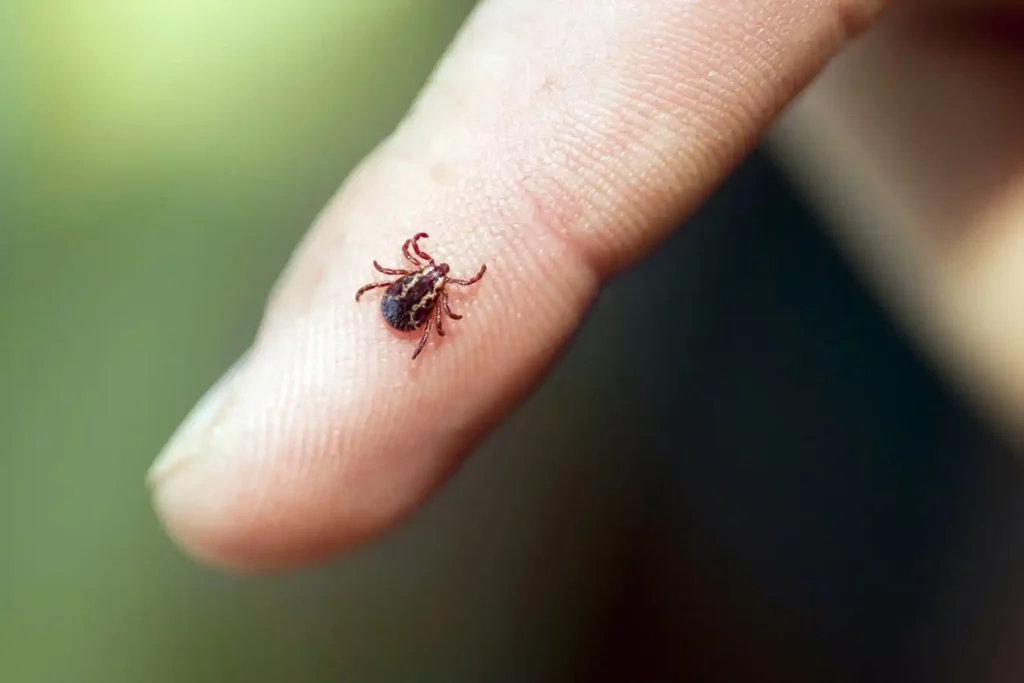
Despite their small size, ticks are surprisingly resilient. Their life cycle can span years, and they’re most active from spring to fall, precisely when most of us hit the great outdoors.
Risks Associated with Ticks
The thing about ticks is that they’re not just annoying. They’re also potential carriers of diseases. Ever heard of Lyme disease or Tick-borne encephalitis? Well, these are just a couple of the illnesses that ticks can transmit to humans. Trust me when I say, getting a tick bite can throw a real wrench in your camping journey.
Imagine you’re halfway up the mountain, the peak is just within reach, but you’re suddenly hit with fever, headache, and fatigue. That could be Lyme disease, all courtesy of a tick bite. Not fun, right? That’s why I cannot emphasize enough how vital it is to steer clear of ticks.
Prime Tick Habitats and Their Identification
As much as we love the outdoors, so do ticks. Knowing where they like to hang out can give you a leg up in avoiding these pesky creatures. Let’s shed some light on this.
Tick Habitats
Ticks aren’t picky when it comes to setting up their home. They can be found in various environments, from the humid woodland trails to the grassy fields and shrubs around your campsite. However, they have a preference for areas with dense vegetation where they can comfortably wait for their next unsuspecting host.
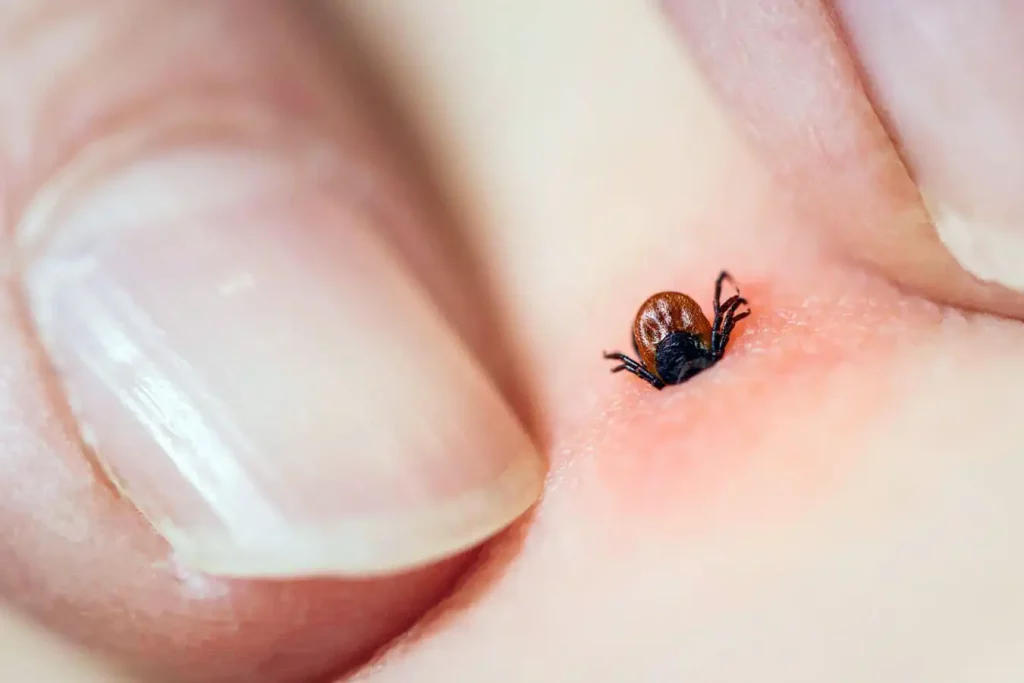
Remember that camping trip last summer when you found a tick after walking through that overgrown path to the lake? That’s classic tick territory.
Identifying Tick-Prone Areas in Campsites
Ticks are crafty. They don’t make nests or webs, making them harder to spot. So, how can you identify tick-prone areas at your campsite? Look out for dense vegetation, tall grass, leaf piles, or overgrown paths. These are prime tick real estate.
A quick tip here: the morning after setting up camp, check the area around your tent for any signs of ticks. If you spot any, consider relocating your campsite.
Effective Ways to Avoid Ticks While Camping
Now that we’ve learned about tick habitats let’s look at some strategies to avoid these critters.
Choosing the Right Campsite
Selecting the right campsite can make a significant difference in your exposure to ticks. Aim for clear, well-maintained areas. Avoid camping near tall grass or thick underbrush where ticks might be lurking. Remember, your campsite isn’t just where you set up your tent; it’s your home in the great outdoors. Make it a tick-free zone!
Proper Clothing and Gear
When it comes to avoiding ticks, your outfit and gear play a crucial role. Opt for long-sleeved shirts and pants. Tuck your pants into your socks for an extra layer of defense. Light-colored clothing can help you spot ticks more easily.
And let’s not forget about gear. Consider treating your camping gear with products containing permethrin, a tick repellent. From tents to boots and backpacks, every item can be a barrier against ticks.
Use Insect Repellent
Tick repellents are a camper’s best friend. Look for products with DEET, picaridin, or oil of lemon eucalyptus. These compounds are proven effective in repelling ticks. Remember, proper application is key. Follow the instructions on the label for the safest and most effective use. For an example of campers lover tick repellent – Repel 100 Insect Repellent (Amazon). This insect repellent work best for all types of annoying and harmful insects.
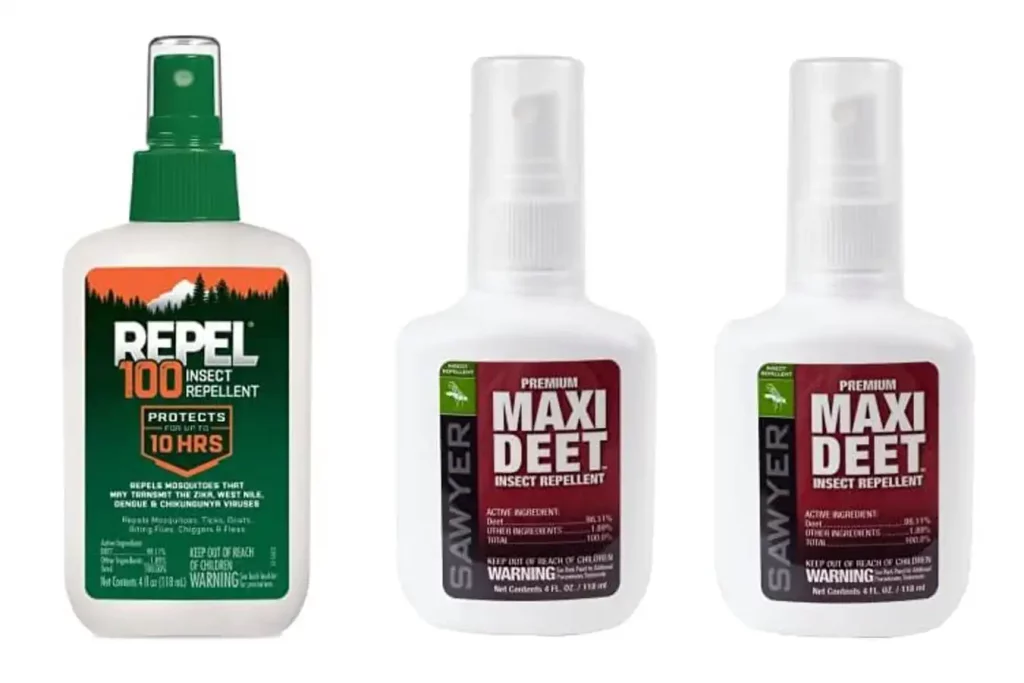
Regular Checks for Ticks
Conduct regular tick checks. Pay close attention to under the arms, in and around the ears, inside the belly button, back of the knees, in and around the hair, between the legs, and around the waist. Consider using a mirror or buddy system for hard-to-see areas.
Stay vigilant, fellow campers! Remember, being proactive is your best defense against ticks. Here’s to safe and tick-free camping adventures!
Learn more on: How to Keep Mosquitoes Away While Camping
Safe Removal of Ticks
Finding a tick on your skin is a bit of a shock, I’ll admit. But it’s important to stay calm and remove it promptly to reduce any potential risks. Here’s how to do it right.
How to Safely Remove a Tick
Don’t just pull it off and throw it away; there’s a proper way to remove ticks. Here’s your step-by-step guide:
- Use fine-tipped tweezers or a special tick removal tool to grasp the tick as close to the skin’s surface as possible.
- Pull upward with steady, even pressure. Don’t twist or jerk the tick; this can cause the mouth-parts to break off and remain in the skin. If this happens, remove the mouth-parts with tweezers.
- After removing the tick, thoroughly clean the bite area and your hands with rubbing alcohol or soap and water.
- Dispose of a live tick by putting it in alcohol, placing it in a sealed bag or container, or flushing it down the toilet. Never crush a tick with your fingers.
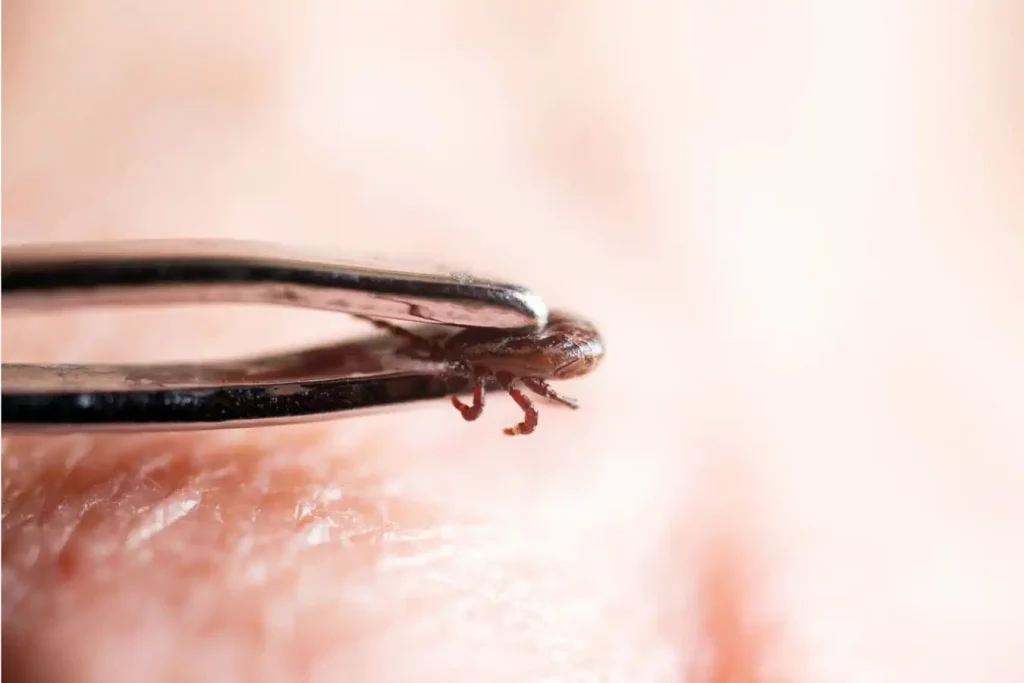
Aftercare and When to Seek Medical Attention
After removing a tick, keep an eye on the site of the bite. Apply a little antibiotic ointment and cover with a clean bandage. If you develop a rash, fever, or body aches in the weeks following a tick bite, seek medical attention promptly. These could be signs of a tick-borne illness.
Read more: How to Keep Animals Away From Campsite
FAQs about Avoid Ticks While Camping
How to avoid mosquitoes while camping?
Use insect repellent, wear long sleeves and pants, and set up a mosquito net around your sleeping area to avoid mosquito bites while camping.
How do you stay tick free while camping?
What is the best tick repellent for camping?
How do I protect my tent from ticks?
What is a natural tick repellent for camping?
Summary
Camping in the great outdoors is a joy, but it’s crucial to stay vigilant for ticks. Remember to choose your campsite wisely, away from tall grass and dense vegetation. Wearing proper clothing, using tick repellents, and conducting regular tick checks can also go a long way in avoiding these pesky parasites.
But if you find a tick has made its way onto you, don’t panic. Remove it safely with the right technique and keep an eye out for any potential symptoms.
So, let’s continue to enjoy the campfire smoke, the smell of camp foods, and the sounds of the forest raining without the worry of ticks. Stay safe, stay informed, and keep exploring.
Happy camping!
Read next: How to keep snakes away from campsite

